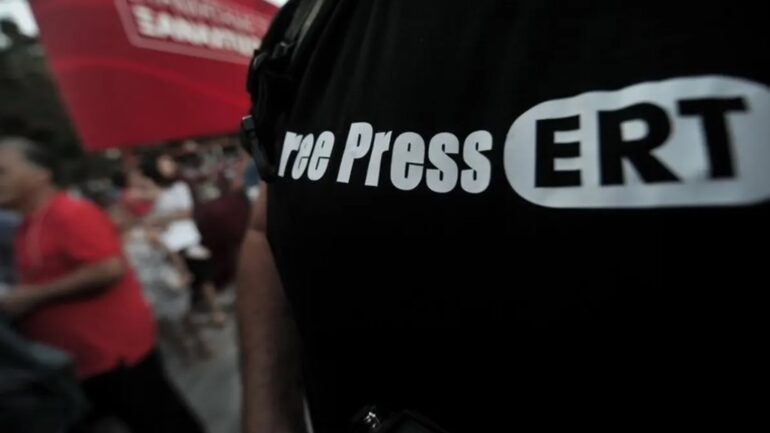TL;DR:
- Greece’s state broadcaster ERT introduced Hermes, an AI-generated virtual TV presenter.
- Hermes read a short message from ERT’s Studio 4, the stage of a debate by political leaders.
- Hermes has a human-like appearance and sound and relies on AI technology.
- The station hinted that Hermes might even cover the campaign and elections.
- Hermes asked the audience to show understanding for any mistakes as it is not perfect yet.
- The rise of AI in journalism raises questions about the future of media and the risks faced by humans in the field.
Main AI News:
The era of Artificial Intelligence (AI) is upon us, and it seems that resistance is futile. From writing to editing, AI has shown remarkable progress. Now, Hermes, the AI-generated presenter, has made its debut on Greece’s state broadcaster ERT, reading the news in a human-like appearance and sound. Though some acerbic critics might say that you can’t tell the difference between the realistic appearance of Hermes and a robot, the fact remains that AI has become advanced enough to replace humans in certain fields, including journalism.
The virtual TV presenter, named after the ancient Greek messenger of the Gods, read a short message from ERT’s Studio 4, the stage of a debate by political leaders ahead of the May 21 elections. “Ladies and gentlemen, good evening!” said Hermes in his first-ever TV address. “Thank you for your presence in Studio 4 of ERT. It is the studio which in a few days will host the political leaders’ debate moderated by Giorgos Kouvaras.”
Hermes went on to explain that he was brought in to do the presentation due to the workload and that he had only asked to do a pilot show. However, it seems that he gave them ideas, and they now want to follow the latest technology. The station hinted that Hermes might even cover the campaign and elections, though it wasn’t clear how since AI can’t go to the scene of an event.
Despite the advancements in AI technology, it is not perfect yet. Hermes asked the audience to show understanding for any mistakes and to direct complaints to his programmer. This raises the question of what risks journalism and people face with the rise of realistic AI. It remains to be seen how the integration of AI will impact the field of journalism and how it will shape the future of media. Only time will tell.
Conlcusion:
The debut of Hermes, the AI-generated virtual TV presenter on Greece’s state broadcaster ERT, marks a significant milestone in the integration of AI in the field of journalism. This development highlights the growing trend of using advanced technology to replace human resources in certain fields.
With the rise of AI in journalism, it is possible that there will be a shift in the market towards an increased reliance on automation and machine learning, particularly in the field of media. It remains to be seen how this will affect the market, but it is clear that businesses and organizations will need to adapt to these technological advancements to remain competitive in the industry.

